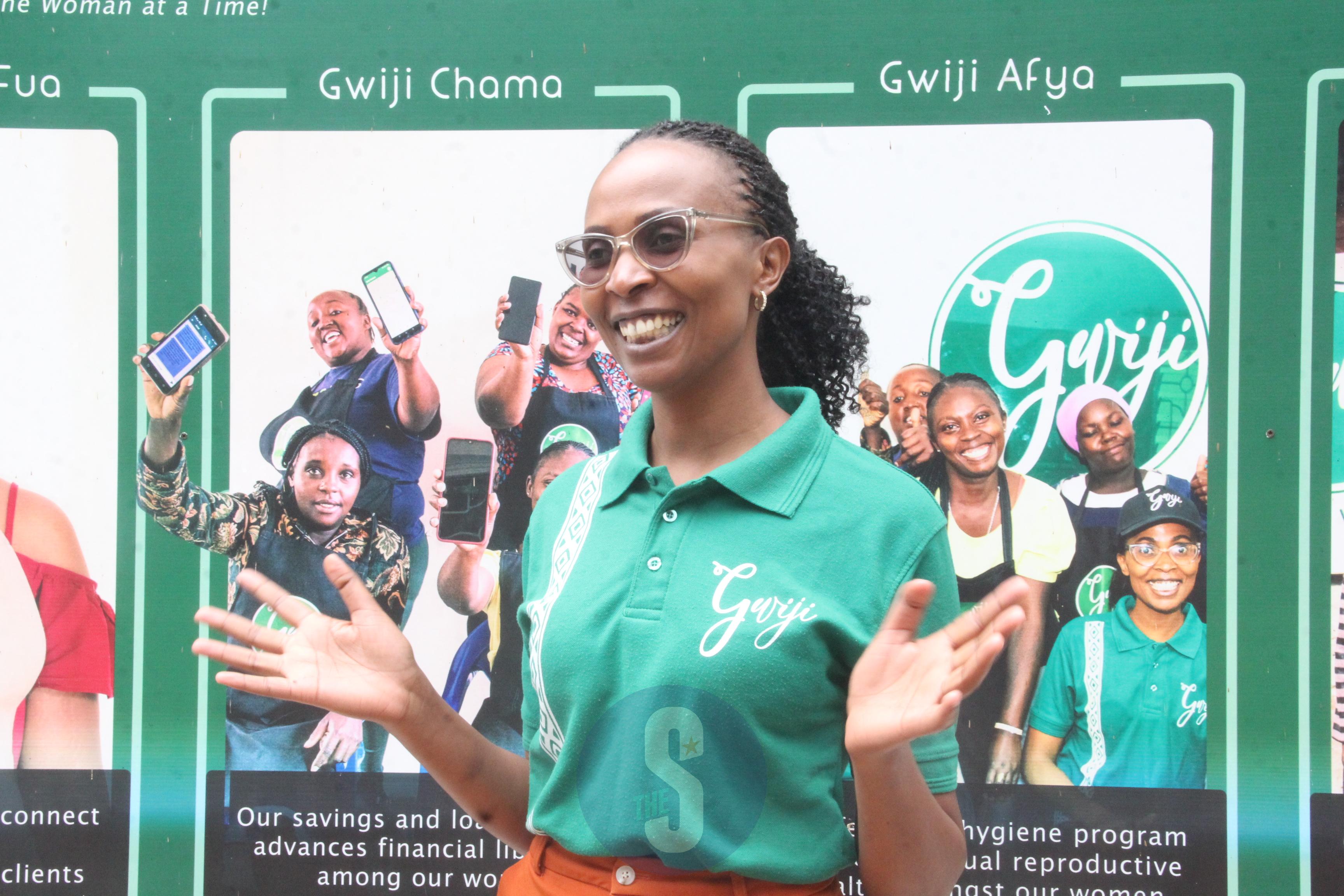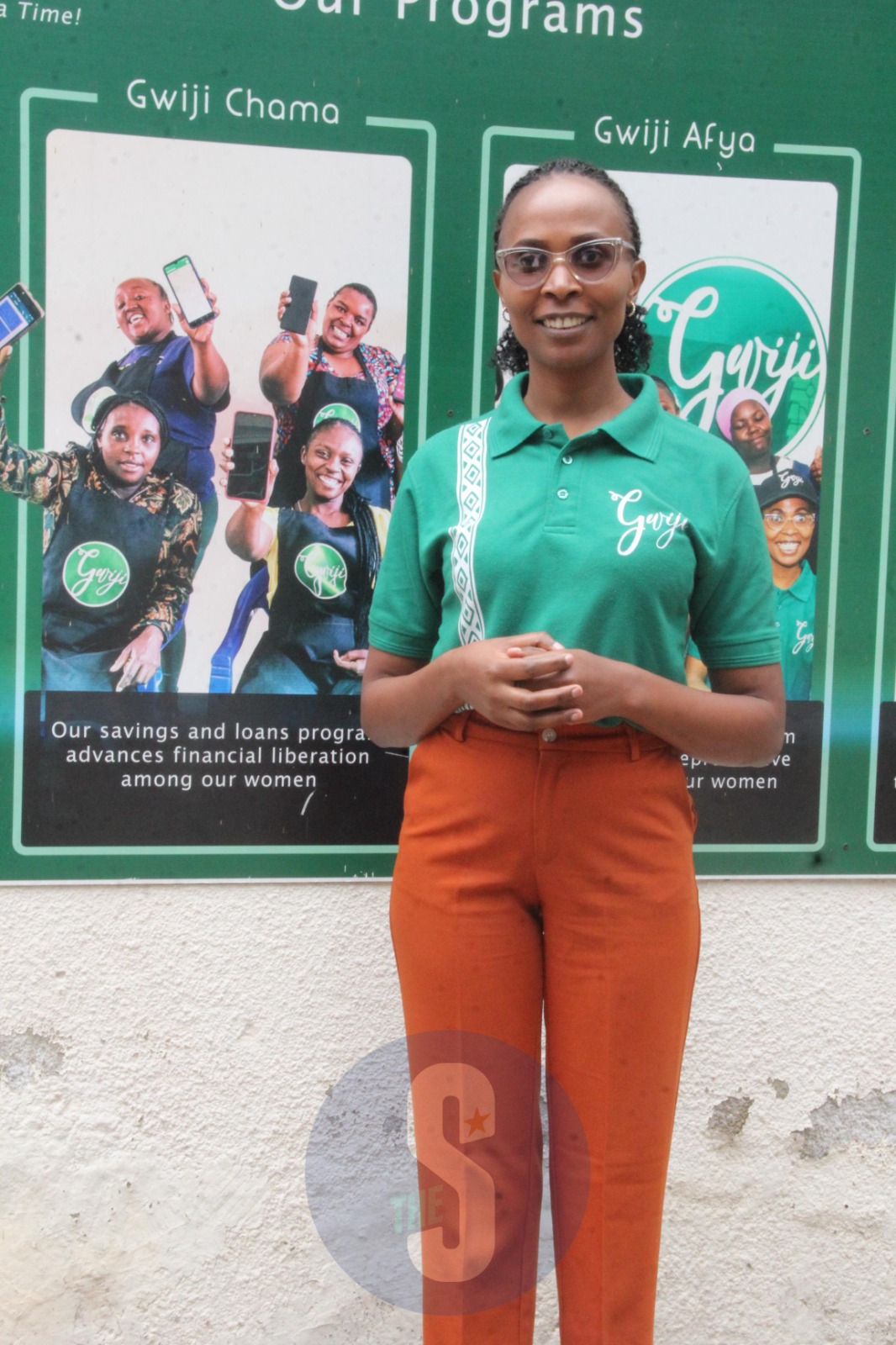
At just 32 years old, Elizabeth Mwangi stands at the helm of a movement that is quietly transforming the lives of thousands of women in Kenya’s informal settlements.
With no background in information technology and no startup capital to lean on, her story is not one of privilege but one of sheer determination, vision, and the will to rewrite a narrative.
Elizabeth is the founder and CEO of Gwiji for Women, a mobile platform born out of a desire to restore dignity to domestic workers, particularly women living in urban slums.
The application, simple and user-friendly, now
connects over 3,800 women with clients across Nairobi and surrounding counties,
giving them not just jobs but the ability to choose, to plan, and to thrive.
Fresh from university with a degree in architectural engineering, Elizabeth had no formal training in tech, no money, and no connections.
She was just another young graduate facing an uncertain job market, yet she carried within her a vision shaped by personal experience, one that would eventually change thousands of lives.
Growing up, Elizabeth watched her mother toil in the domestic sector and was motivated to move beyond borders.
“She would wake up very early and return home late. Despite all that, she struggled to pay our school fees and put food on the table,” she said.
But what stuck with Elizabeth even more was the realisation that her mother was not alone. Many women in her community were enduring the same silent struggle.
While in university, Elizabeth volunteered for an NGO that connected women from slums with domestic work.
When the project came to an end, something lingered. Women she had worked with began calling her, asking for job opportunities.
The experience planted a seed. Why not build something sustainable, a platform that didn’t just offer help once, but continuously empowered?
Elizabeth partnered with a co-founder who was
an IT expert. Together, they developed a mobile application that would match
domestic workers with clients.
In 2020, Gwiji for Women was born. The app was incorporated in 2021 and officially launched in May 2022.
They began in Lang’ata, working with women
from Kibera, and by 2023, had expanded to Nairobi’s larger metropolitan area,
including Machakos, Kajiado, and Kiambu counties.
Elizabeth remembers knocking on over 100 doors seeking investors; her pitch was often met with scepticism.
She was young, unconnected, and building a tech platform for an informal sector that many dismissed.
One of the early hurdles was onboarding women who were not tech-savvy.
Most did not own smartphones or have data bundles. Gwiji’s design, therefore, had to be incredibly simple.
The app integrated M-Pesa for easy payments, automated communication with clients, and minimised data usage to accommodate limited internet access.
“We made it user-friendly. Before onboarding women, we train them for three days. They learn how to use the app, operate a vacuum cleaner, washing machine, and even get basic communication and professionalism training,” she said.
Women are vetted with a national ID, a letter from the local Chief, and must be 18 years or older.
Gwiji prioritises both client satisfaction and
cleaner safety. The app includes safety features such as location pinning,
client vetting, and an SOS button cleaner can press if they feel unsafe.
“Most cleaners complain of harassment, especially from male clients. We ensure they are safe, trained to spot danger, and supported in real time,” she added.

Elizabeth said that before Gwiji, women would
work a full day for as little as Sh200.
Now, the minimum rate is Sh1,000 with women keeping Sh800 after paying a 20 per cent commission.
With support from partners like Unilever, the Foreign Commonwealth and Development Office (FCDO) and Ernest and Young (EY) under the TRANSFORM initiative, Gwiji has extended its reach to nearly 10,000 women.
Beyond just cleaning jobs, they now offer carpet cleaning, fumigation, and team cleaning services. Cleaners can also earn extra income by selling Uniliver cleaning products to clients during jobs.
More than just a job-matching platform, Gwiji is a community builder. Through programs like Gwiji Chama, women save money and learn financial literacy.
Gwiji Linda Mama ensures safety and protection against harassment, while Gwiji Afia promotes sexual and reproductive health.
“We empower them in every element economically, financially, in terms of health and personal safety,” Elizabeth says.
Despite its growing impact, Elizabeth admits the early days were discouraging.
She said orders were few, traction was slow, and marketing was a steep learning curve.
“Even with the best product in the world, you still need to market it constantly. That was a hard lesson,” she added.
For Elizabeth, the success of Gwiji is not measured in downloads or awards, though there have been plenty.
In 2023, Gwiji won the Best App for Empowering Women at the Mobile Apps Awards and was named a global winner of the Aurora Tech Award.
Personally, Elizabeth was named among Kenya’s Top 40 under 40 Women and 50 Most Influential Women in 2024.
“When I receive an award, it’s not just for me. It’s for the women working at Gwiji. It means they feel seen and heard.”
She called on women across the country who want to join entrepreneurship and business to start with what they have.
“I had all the reasons not to start Gwiji. No capital. No tech skills. But I pushed through. Don’t wait for permission or perfect conditions. If you have an idea, act on it. We are all capable of bringing change.”
“We can’t always wait for the government to solve everything. Let’s empower each other as women. Let’s support each other’s businesses. Let’s build greener pastures right here in Kenya.”
Today, thousands of women are living proof of what happens when one person dares to believe in something bigger. Elizabeth Mwangi didn’t just create an app; she created a movement.
















